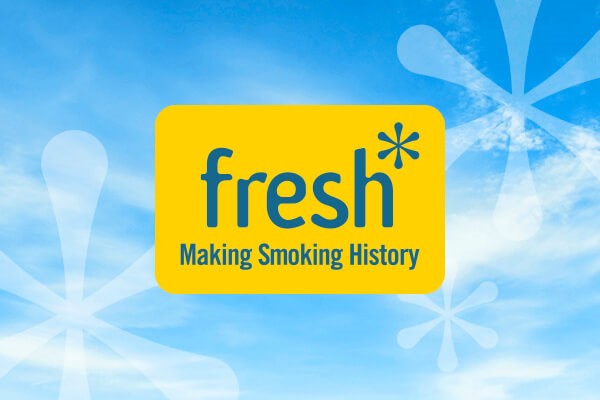Fresh to give evidence on illegal tobacco to All Party Parliamentary Group on Smoking or Health
ACTION in the North East to tackle the illegal tobacco trade will come under the spotlight with MPs and Peers at a Parliamentary inquiry this week.
Fresh has been called to give evidence as part of a three day investigation by the All Party Parliamentary Group on Smoking and Health into the illegal tobacco trade, starting on December 6.
Although illegal tobacco is still a problem in some areas, the North of England Tackling Illicit Tobacco for Better Health Programme – set up to bring together the work of the NHS, HMRC, councils and police – has helped reduce the amount of illegal tobacco consumed since its launch in 2009.
Between 2009-2011 the volume of illegal tobacco bought by smokers fell by 39%, while the number of smokers actually buying illegal tobacco fell by ten per cent. This is estimated to have saved around £36 million in duty and tax.
The APPG inquiry follows the adoption of the Illicit Trade Protocol, a new international treaty adopted by more than 140 countries worldwide in November setting rules for combating the illegal trade. Tighter controls of the supply chain and international cooperation, including a global tracking and tracing system are part of the new Protocol.
Ailsa Rutter, director of Fresh, which ran the ‘Keep It Out’ campaign on illegal tobacco earlier this year, said: “All tobacco is harmful, but illegal tobacco is a problem that helps children get hooked on smoking.
“There are many lessons to learn on tackling the problem and in the North East ongoing work by the NHS, HMRC and trading standards has resulted in greater awareness of the problems, more people reporting it and fewer people buying illegal tobacco.”
Richard Ferry, of the North East Trading Standards Association, said: “The market has changed a lot in recent years. We have seen fewer counterfeit cigarettes and more mass produced brands made in factories in places like Kaliningrad making their way across. The suppliers don’t even try to pass them off as genuine product.”
The hearing is likely to look at trends in the illicit trade in tobacco products in the UK, and how the UK Government should implement the Illicit Trade Protocol to put in place an international tracking and tracing system for tobacco products.
As well as looking at effective local and regional partnerships in tackling the illicit trade, it will also look at the impact of the EU legal agreements on illicit trade with the big tobacco firms.
After serious increases in illegal tobacco smuggling in the 1990s, the illegal tobacco market has halved in the last decade due to tough international controls and heavy restrictions on tobacco companies supply chains.
The latest official statistics from HMRC show that less than one in ten cigarettes was illegal in 2011 (9%) compared to over one in five cigarettes (21%) back in 2000. Increasingly the most seized illegal cigarettes across Europe have been brands like Jin Ling – openly mass manufactured in Kaliningrad specifically for the illegal market – rather than fakes.
A new report commissioned by Cancer Research UK from Luk Joosens, an international expert on the illegal tobacco trade and commissioned by Cancer Research UK, has rubbished claims by the tobacco industry that standardised, plain packs would fuel illegal tobacco.
Luk Joossens, report author and international expert on illicit tobacco trade, said: “The tobacco industry claims that plain packs would be easier to counterfeit. The reality is that all packs are easy to counterfeit and that counterfeiters are able to provide top quality packaging at low prices in a short time. Plain packaging will not make any difference to the counterfeit business.”
It shows that counterfeit packs are so cheap to make they can hardly become much cheaper and plain packaging will not significantly affect their final price. The report also shows that it is effective government action that has been successful in cutting the illicit trade.
